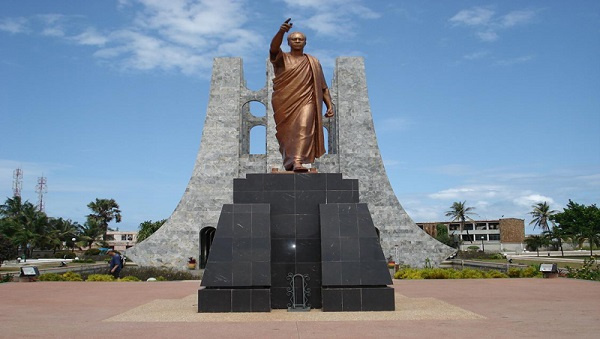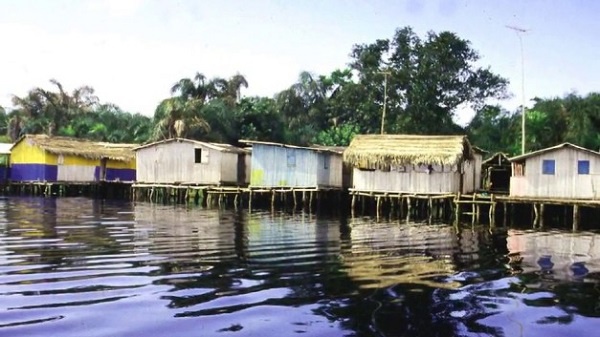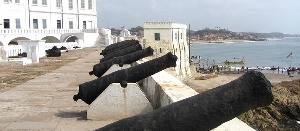The fortunes of Ghana’s tourism has for a long time been hinged on the magnanimity of foreign tourists and visitors. While this phenomenon may not be bad considering that the country needs foreign cash, it is imperative we shift focus on scaling up numbers in the domestic tourism sector.
The need to grow this aspect of our tourism requires that citizens develop a keen interest in patronizing our tourists’ sites. It is a well-known fact that Ghana is blessed with some of the most incredible sites in the world. With many of these attractions in their natural state, lovers of nature and eco-tourists will find the country the best to be for some real tourism adventure.
Ghana’s spectacular and scenic tourist attractions, hospitable people, and delicious food add to the grandiosity of an industry which is fast becoming one of the foremost pillars of the economy. But while statistics have shown over the years that foreign tourists and visitors have helped to boost the sector, there are equal indications that citizens can help to put tourism in Ghana on a much higher pedestal.
The need to shore up the domestic tourist numbers stems from the fact that evidence exists all over the world and particularly, in some African countries that the industry is rife with the prospect of transforming livelihoods through employment and wealth creation. There are strong indications that the potential tourism wields in transforming economies and empowering livelihoods is maximized through a vibrant domestic tourism sector.
Countries that have embarked on the promotion of local tourism are still reaping the benefits and have been able to transform whole communities into tourists’ sites while increasing local participation.
In South Africa for instance, domestic tourism has become an important source of revenue and employment, recording about 17.2 million domestic tourists last year ++with cruise and rural tourism as focus growth areas. World-class sites have been established to commemorate the country’s past and celebrate its new found unity, while the number and quality of community, village tours have grown dramatically.
While the Ghanaian scenario may be far from this narrative, evidence abounds to the possibility of having a more vibrant and effective domestic tourism sector which can significantly improve the living conditions of those engaged in it. Ghana has a vast and aesthetic collection of monuments in forts and castles, reverential sites and a lot more which have become a constant reminder of our historic role in the activities of the Transatlantic Slave Trade era. These sites can be harnessed to reflect the example South Africa presents.
It is significant to note that the promotion of domestic tourism is a shared responsibility that requires the concerted efforts of all stakeholders-policy makers, private sector, traditional authorities and local citizens.
Individually, a change in perspective towards the patronage of tourists’ sites could go a long way to give the industry the needed facelift. While people may be inclined to visit some of these sites only during holidays, a change in perspective could make it a routine exercise which in turn could bring in more foreigners to the sites. So instead one of waiting to organize a group of people to Kakum Park on Farmers’ Day for example, they could go there on weekends instead. I have tried to explain my own observation of the kind of synergy that exists between Ghanaians and our tourism, yet I couldn’t have used a better example to illustrate that relationship than one of which I was part. In an era where new media and advanced technology is making it possible to practically do everything and anything, we should be able to use the tools of technology to drive tourism numbers domestically. Social media in particular, presents us with a fine opportunity for this to be done.
A unique element of tourism in Ghana is the fact that it is one of the few sectors of the economy which put direct money into the hands of those engaged in it, which implies that an increase in the number of visitations ultimately improves the financial situation of stakeholders.
As a country famously known for her peace and political stability, Ghana has proven to the world we can be trusted when it comes to safety of tourists and that should be leveraged on by local citizens by helping drum home this phenomenon to prospective foreign visitors and tourists.

One way to stimulate interest in tourism will be to create tourism clubs and environmental protection societies in schools. More and more of the youth in Ghana must be involved in tourism; only then can they develop the strong desire to be a part of its success stories in the future. Additionally, annual leave from workers should be made compulsory to make sure that workers get time to visit tourist sites. Perhaps there should be a policy that workers who do not take their leave automatically forfeit their leave allowance.

Ghanaians need to be made aware of the significance of domestic tourism and its impact on the Ghanaian economy. It is worthy of commendation that initiatives continue to spring up in the domestic tourism drive, notably: Ghana Tourism Authority’s, See Eat Wear Feel Ghana, Citi FM’s Heritage Caravan, Wango Wango, among others. While it is extremely commendable that such initiatives are helping to open up tourist sites to Ghanaians, there is still more that can be done to rouse the enthusiasm and the desire to patronize these sites. While we recognize the effort of government in trying to shore up interest among citizens to embark on domestic tourism trips, we urge it to create the enabling environment for local investments and businesses to thrive within the sector.
Tourism has an enormous potential to develop the country but this huge potential is easily overlooked. And until each Ghanaian is prepared to tap into this huge prospect, we will continue to rely on the magnanimity of foreigners to develop a sector which has the potential of creating wealth through massive employment for local citizens.
Entertainment of Tuesday, 11 December 2018
Source: 3news.com/samuel obeng appah

















